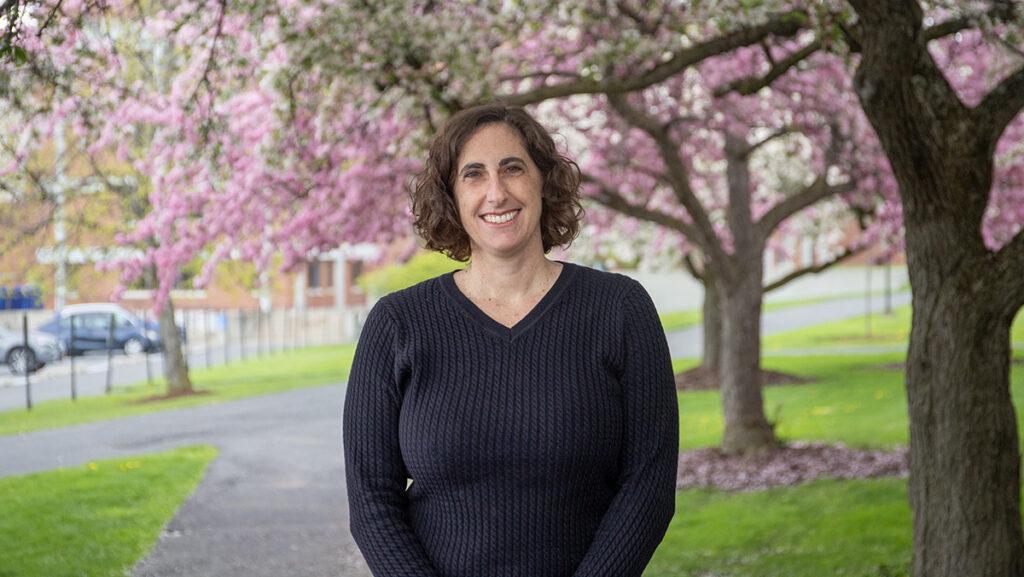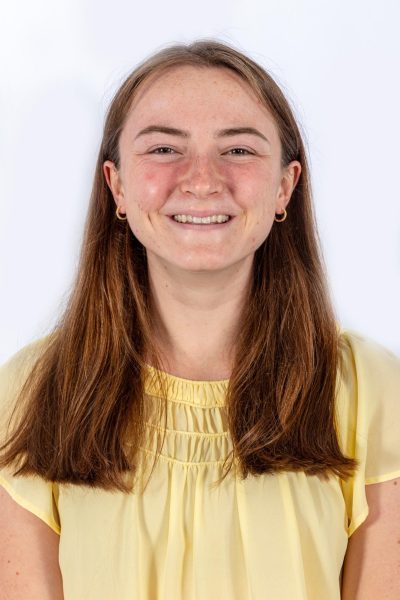The Ithaca College Department of Education will launch a new Bachelor of Arts in Education Studies degree in Fall 2023.
The Department of Education currently offers several pathways for students to take education courses. The Teach in Five program allows students to become certified teachers in five years. Students complete a four-year undergraduate degree in a specific content area and receive expedited entry to the 13 month graduate teaching program, which prepares students to receive their New York State teaching certification. The department also offers a minor in Education Studies.
Sara Levy, associate professor and chair in the Department of Education, said the department started exploring the possibility of an Education Studies major in Fall 2020 after several Education Studies minor students said they wanted to take more education courses. Levy said the department wanted to provide more options for students who are not interested in teacher certification or the Teach in Five program and want to use the education curriculum to pursue other career options.
“A lot of our minors were not interested in becoming teachers,” Levy said. “They were interested in going into nonprofit work, they were interested in going into counseling, they were interested in going into … extracurricular education, a lot of theater education, stuff like that. … [The Education Studies major] allows us to be a bit broader at the undergraduate level in thinking about what it means to learn and to teach, and not just, ‘Here’s what you need to do in order to pass the New York state test to be a teacher.’”
The major includes 14 credits of required courses and a minimum of 24 elective credits. Out of the 24 elective credits, 12 must be education courses with the EDUC (education) prefix in the course catalog. The other 12 must be culture, race and ethnicity courses with the CSCR prefix or education courses, or have an Education Studies Elective attribute.
Sophomore Mikayla Velazquez, a theatre studies and education double major, said she changed her Education Studies minor to the major soon after it launched. Velazquez said she likes that students who take the major are not required to pursue teacher certification, as she currently hopes to use the Education Studies major to work in children’s theater.
“I think it’s cool to still major in education, but not necessarily [needed] to become a teacher,” Velazquez said. “I think that’s good for people like me, because I don’t necessarily know if I want to be a teacher, and so being in this [major] could help me make that decision.”
Previously, the college offered individual majors in specific teaching areas, like K–12 art, 7–12 biology, 7–12 French, 7–12 mathematics and 7–12 social studies. In Spring 2021, undergraduate teaching majors were cut as part of the Academic Program Prioritization process.
Levy said she wants to emphasize that the Education Studies major is a completely new major that is not associated with the previous teaching options majors.
“Those [teaching options] majors were housed in the disciplines,” Levy said. “So you had like a history major with a teaching option, or an English major with a teaching option. Those were eliminated, but they’re not really related [to the Education Studies major]. It’s not like, ‘Oh, those were eliminated and this started.’”
In the Teach in Five program, students take a minor in Education Studies and select a specialty subject that they would like to teach in, like math or Spanish, for their major. Students complete their graduate teaching degree in their fifth year at the college. Levy said that this approach was best for students interested in teaching grades 7 through 12 because middle school and high school teachers typically teach one subject.
The Education Studies major provides a more general overview of education and learning. Levy said the Education Studies major alone does not provide a teaching certification, but students may still choose to apply to the graduate program. Students who pursue the Teach in Five program will be able to use Education Studies as their undergraduate degree, which means that they do not have to select a specialty subject.
Levy said this allows students who want to become elementary educators to enter the Teach in Five program, as the Education Studies major provides a broader view of general teaching and learning. Students can combine their Education Studies undergraduate degree with the Master of Science in Childhood Education.
First-year student Hannah Woolsey said she declared as an Education Studies major soon after the program was officially announced. Woolsey entered the college as an exploratory student, but she had heard rumors that the college was planning to introduce an Education Studies major and entered with the hope that she could later declare as an Education Studies major.
Woolsey said she hopes to become an elementary school teacher and she is excited that the Department of Education made the major more general to allow students to pursue elementary education.
“I love working with [young] kids,” Woolsey said. “That’s what I’ve wanted to do since I was very young, so I’m excited to have that option.”
Woolsey said she hopes to receive her Bachelor of Arts in Education Studies and continue to the graduate teaching degree to complete the Teach in Five program.
Levy said the Department of Education designed the Education Studies major to be flexible and interdisciplinary so that students could build their own degree to be relevant to their future goals.
“Students now, I think in our department, have a lot of room to have a really solid, thorough, rigorous, fun undergrad experience,” Levy said. “Our major is a little flexible. And so it really gives students the ability to design an undergraduate program that encompasses all the things they’re interested in, because a lot of our students are interested in a lot of things.”
Woolsey said she likes that the Education Studies major is so accommodating because it allows her to explore multiple subjects and courses.
“I am excited about it because the setup of it gives a lot of pathways,” Woolsey said. “It’s only a total of 38 credits, so it gives you a lot of room to take liberal arts courses or other courses that you wouldn’t normally get to take if you’re in a strict, scheduled major. … Next semester, I’m taking a bunch of education courses, but I also have room for those extra ones.”
Velazquez said she appreciates the flexibility of the Education Studies major because it makes it easier for her to satisfy the requirements of both of her majors.
“My theatre major, it’s built like, ‘This year, you need to take this [and] this year, you need to take this,’ and I like that the education major is not like that,” Velazquez said. “Once I take the four required courses, I can take the education courses that I want to take and still be able to get credit for the major.”
Levy said she hopes that more students will consider the Education Studies major, even if they do not intend to become teachers, because it provides valuable instruction that can translate to any career.
“Almost any field that you go into — if you’re working with other people, if you intend to kind of rise through your profession — at some point, you’re going to be trying to teach people things,” Levy said. “At some point, you’re going to try to understand why people are thinking the way they’re thinking. … This major, I think it helps empower us to understand how we get to be who we are, and how we can help kind of develop a bit more justice and equity in the spaces we find ourselves in in the future.”









